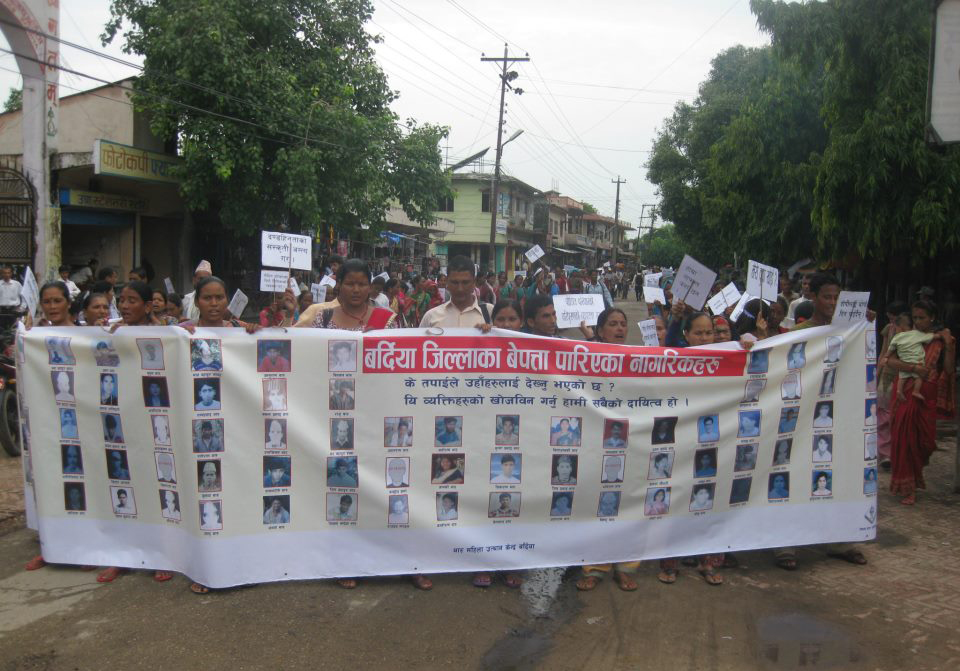The ICJ today called on the Government of Nepal to amend the 2014 Commission on Investigation of Disappeared Persons, Truth and Reconciliation Act (TRC Act 2014) to bring it in line with international law.
In its briefing paper, Justice Denied: the 2014 Commission on Investigation of Disappeared Persons, Truth and Reconciliation Act, the ICJ raised serious concerns over the recently enacted law in Nepal that aims to tackle “truth and reconciliation” as it continues its process of transition from the 10-year armed conflict that racked the country from 1996-2006.
The TRC Act 2014 retains the possibility of granting amnesties for crimes under international law (section 26); lacks a transparent and fair vetting process for the selection of Commissioners (section 3); fails to properly insulate the Commissions from political interference in the appointment of the Secretary and the administration of funds (section 10 and 12); and allows for mediation without the informed consent of the victim (section 22).
“The Government has essentially repackaged the discredited 2013 Truth and Reconciliation Commission Ordinance and sold it as a new transitional justice act,’’ said Sam Zarifi, ICJ Asia Pacific Regional Director. “The TRC Act 2014 ignores the directives of the Supreme Court in its 2 January 2014 judgment and retains many of the very provisions that the Court held to be unconstitutional and in contravention of international law.”
Despite clear mandates of previous Supreme Court rulings, there continues to be no legislation criminalizing torture, enforced disappearance, crimes against humanity and war crimes, and no attempt to repeal the 35-day statute of limitations in rape cases (Chapter 14, section 11, Muluki Ain).
In its 2012 briefing paper, Compromising Justice: Nepal’s Proposed Ordinance on Commission of Disappeared Persons, Truth and Reconciliation (2012), the ICJ forewarned that the increasing proclivity of Nepali political parties to undermine accountability threatened the objective of achieving justice in transition.
“Now almost eight years after the Comprehensive Peace Agreement in 2006, we see the Government has stymied all efforts to achieve justice, accountability and reparations for the victims,” said Zarifi. “Without a meaningful process to justice adhering to international standards and the rule of law, there cannot be lasting peace in Nepal.”
In its report Authority without Accountability: the struggle for justice in Nepal, the ICJ documented the complex web of immunities in Nepal, warning that entrenched impunity undermined rule of law and threatened political stability.
The ICJ reiterates its call on the Government of Nepal to establish a transitional justice mechanism that adheres to international laws and standards: amend the TRC Act 2014; immediately implement the 2 January 2014 decision and previous decisions of the Supreme Court; and abide by the terms of the 2006 Comprehensive Peace Agreement and the 2007 Interim Constitution.
To view the complete ICJ briefing paper, please click on the link below
CONTACT:
Sam Zarifi, ICJ Asia Pacific Regional Director (Bangkok), t: +66 857200723; email: sam.zarifi@icj.org
Ben Schonveld, ICJ South Asia Director (Kathmandu), t: +9779804596661; email: ben.schonveld@icj.org





